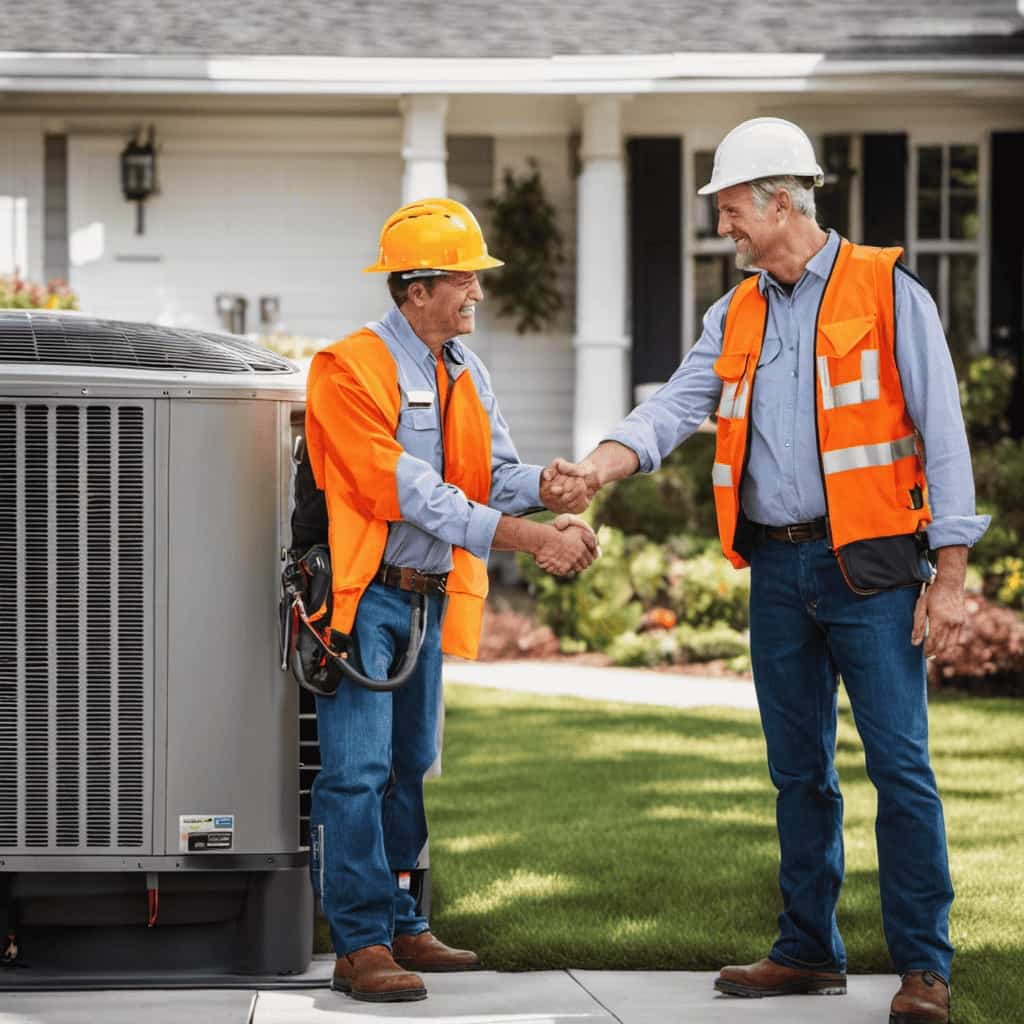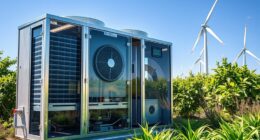Are high energy bills and a heat pump that’s not working well getting you down? Don’t worry, we have the solution for you! If you want to save money and improve the efficiency of your heating system, keep reading!
In this article, we’ll explore 14 key factors that can greatly impact the energy efficiency of your heat pump.
From the size of your heat pump to the climate and weather conditions, we’ll delve into all the details you need to know.
So, grab a cup of coffee and get ready to make your heat pump more efficient and save some money along the way.
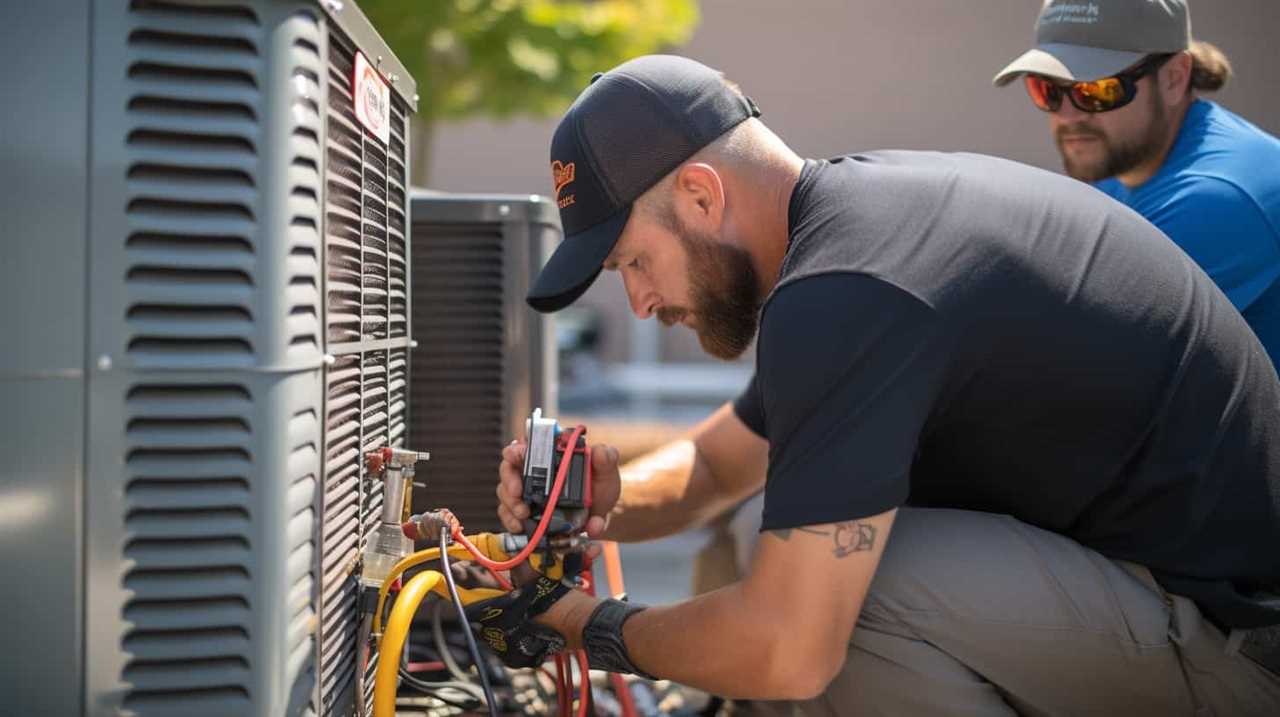
Key Takeaways
- Proper sizing of the heat pump is crucial for optimal performance and energy savings.
- Insulation and air sealing are important for minimizing heat loss and maximizing energy efficiency.
- Adjusting thermostat settings can optimize energy efficiency and minimize energy consumption.
- Regular maintenance and servicing are necessary to maintain energy efficiency and prevent decreased performance due to aging.
Heat Pump Size
When considering heat pump size, we need to focus on efficiency and capacity. The size of your heat pump is crucial for optimal performance and energy savings. During the heat pump installation process, it’s essential to select the right size based on the specific requirements of your home.
A heat pump that’s too small may struggle to heat or cool your space effectively, leading to increased energy consumption and decreased comfort. On the other hand, a heat pump that’s too large can result in short cycling, which not only affects efficiency but also increases wear and tear on the system.
Achieving the right balance between efficiency and capacity ensures that your heat pump operates at its highest performance levels, maximizing energy savings and overall comfort.
Now, let’s move on to the next important aspect: insulation and air sealing.
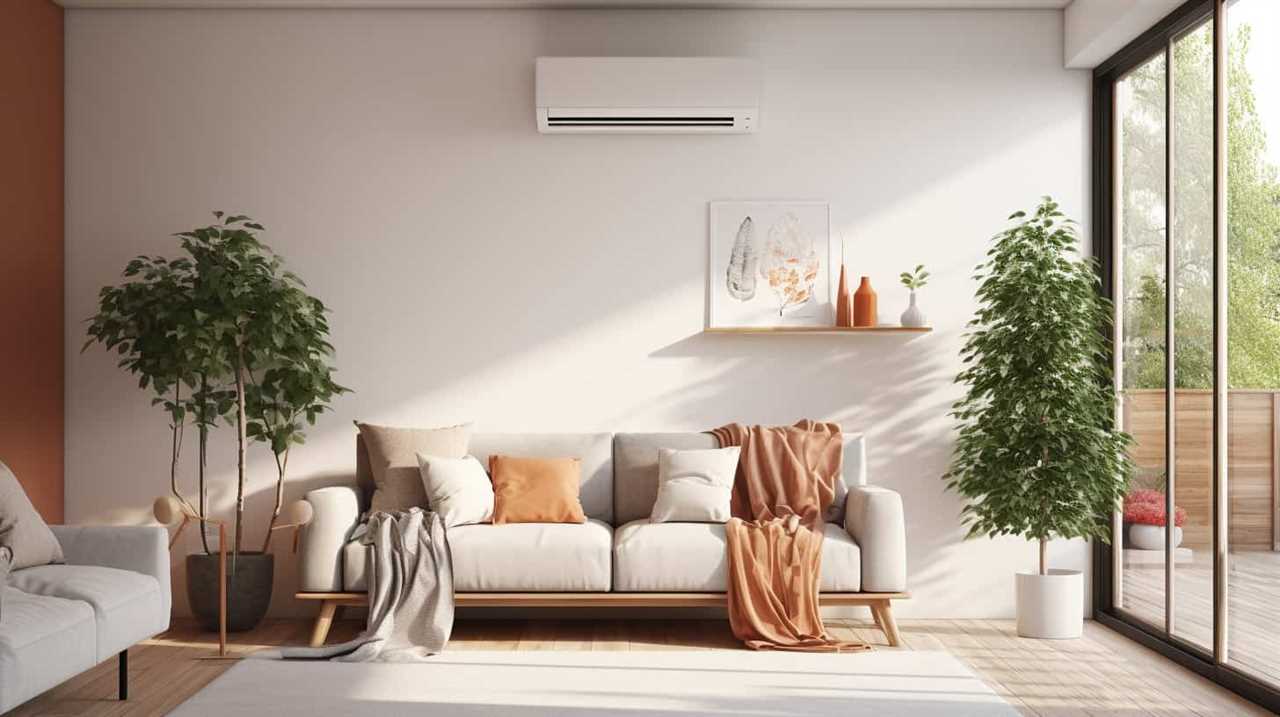
Insulation and Air Sealing
To ensure optimal energy efficiency, we consistently prioritize insulation and air sealing in our heat pump installations.
Proper insulation and air sealing play a crucial role in minimizing heat loss and preventing drafts, resulting in significant energy savings.
Insulation helps to maintain a consistent temperature inside your home by reducing the transfer of heat between the interior and exterior. This means that less energy is needed to heat or cool your space, leading to lower utility bills.
Additionally, air sealing prevents air leaks and drafts, ensuring that conditioned air stays inside and unconditioned air stays outside.
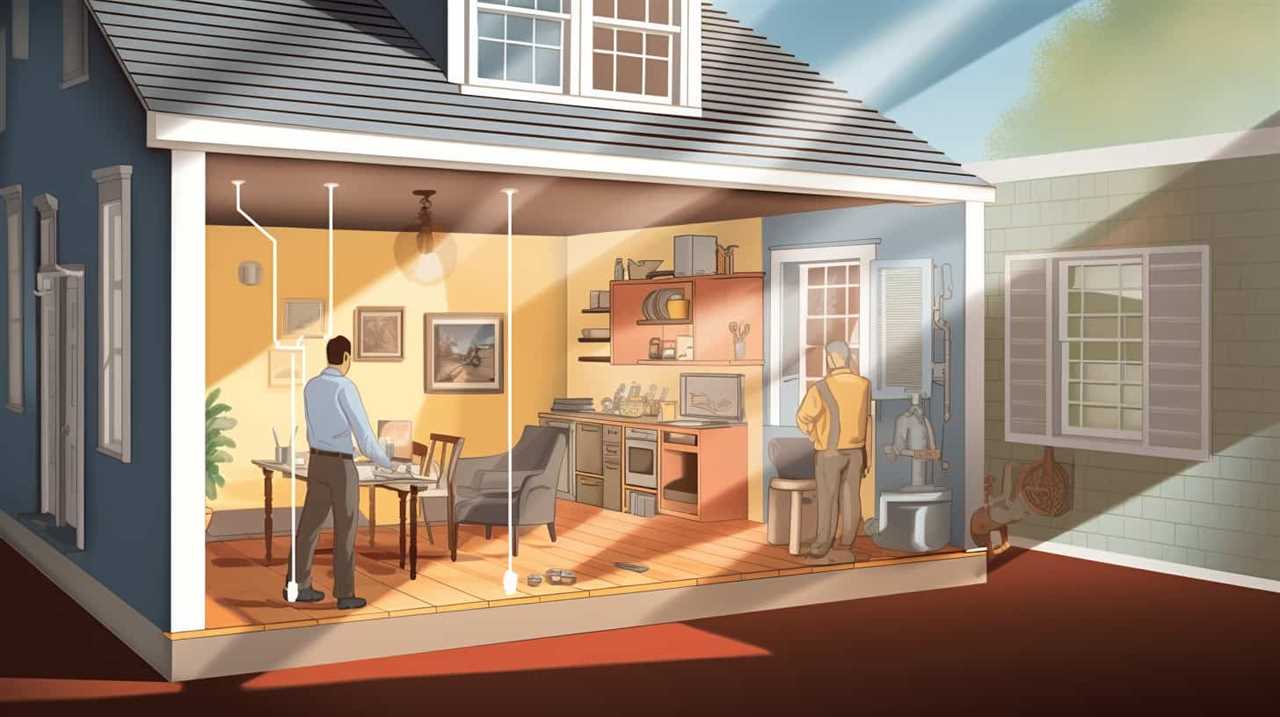
Thermostat Settings
We can optimize our heat pump’s energy efficiency by adjusting the thermostat settings both during the day and at night. Here are four ways to maximize temperature control and minimize energy consumption:
-
Set the temperature lower during the winter months: Lowering the thermostat by just a few degrees can significantly reduce energy usage and save money on heating costs.
-
Use programmable thermostats: These allow you to set different temperatures for different times of the day, so you can automatically adjust the temperature when you’re away or asleep.
-
Embrace the power of setback temperatures: By lowering the temperature when you’re not at home or asleep, you can save energy without sacrificing comfort.
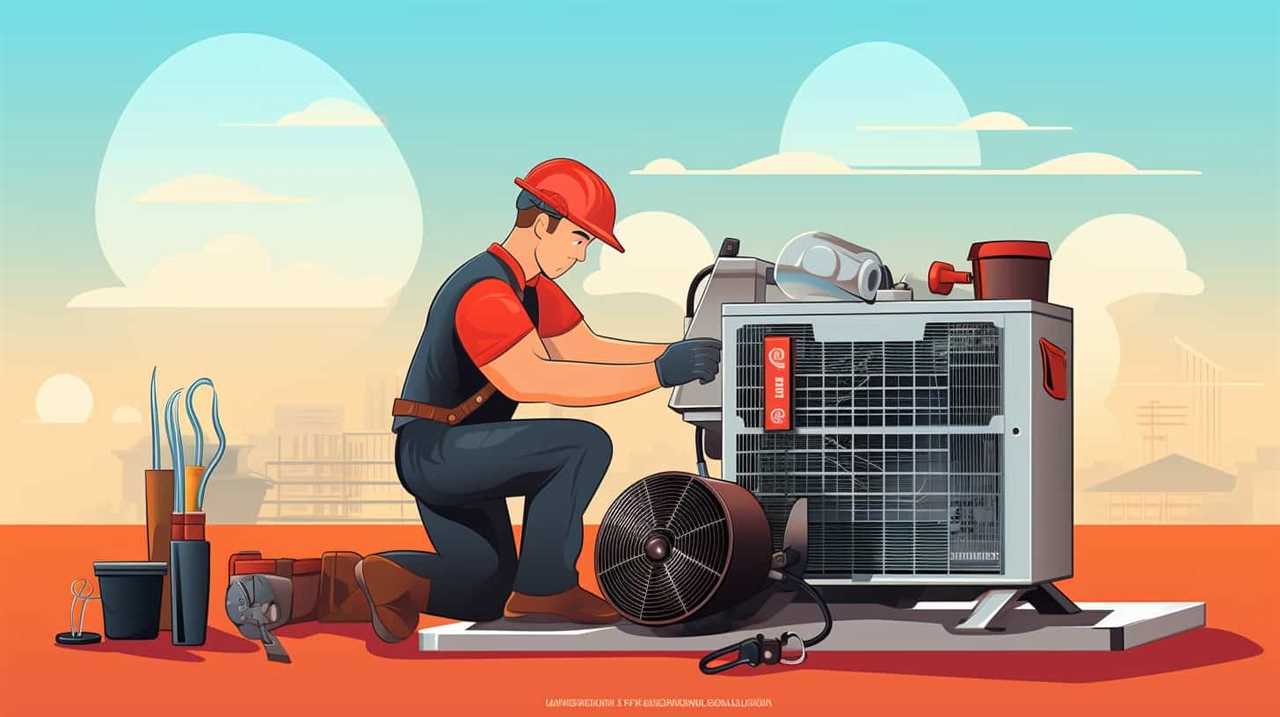
-
Take advantage of smart thermostats: These devices learn your preferences and adjust the temperature accordingly, optimizing energy efficiency while ensuring your home is always comfortable.
Heat Pump Age and Maintenance
For optimal energy efficiency, we must consider the age and maintenance of our heat pump. The lifespan of a heat pump can vary, but on average, it ranges from 10 to 15 years. As the heat pump ages, its energy efficiency can decrease due to wear and tear on the components.
Regular servicing is crucial to maintain its performance and extend its lifespan. During these service appointments, a technician will inspect and clean the heat pump, check for any leaks or malfunctions, and ensure that all components are working properly. They’ll also lubricate moving parts and replace any worn-out parts.
Climate and Weather Conditions
How do climate and weather conditions impact the energy efficiency of our heat pump?
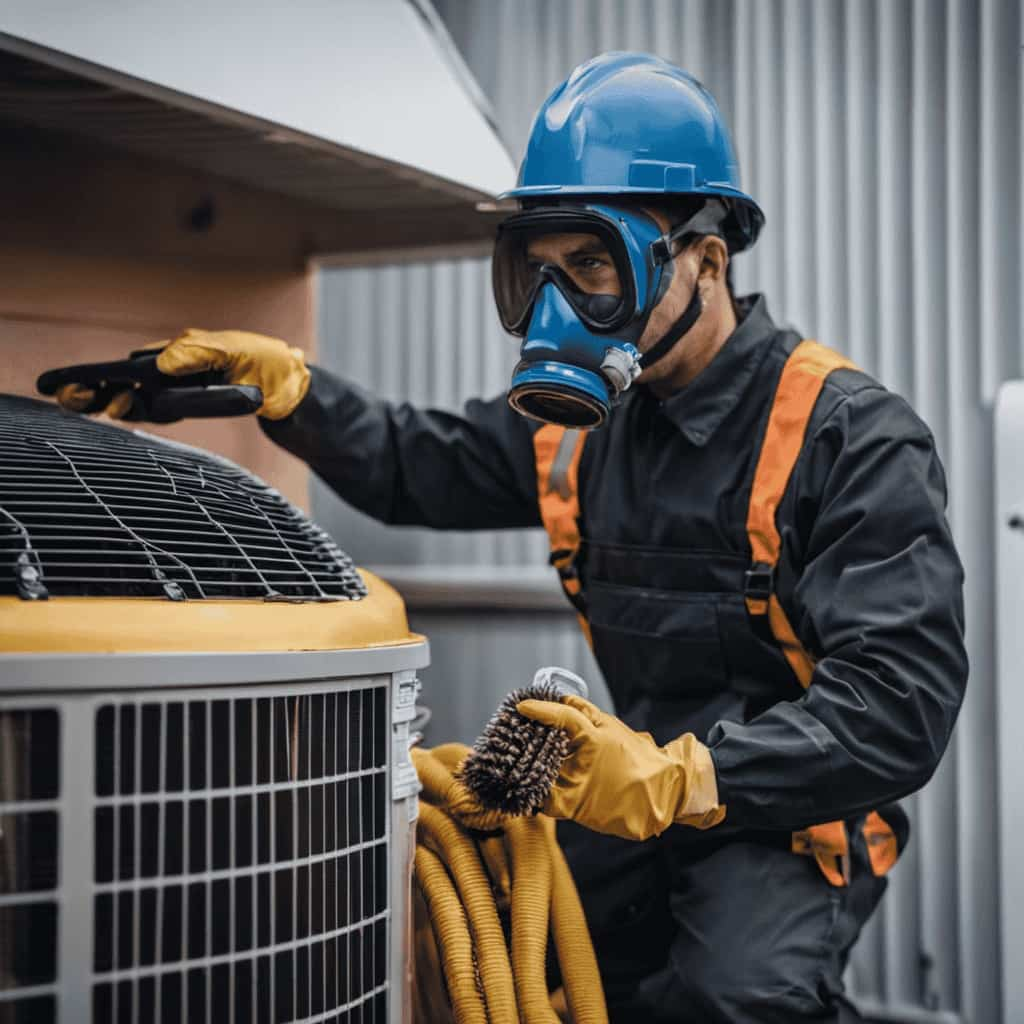
The climate and weather conditions play a crucial role in determining the energy consumption and operating costs of our heat pump. Here are four ways in which climate and weather conditions affect the energy efficiency of our heat pump:
-
Temperature: Extreme temperatures, such as very hot or very cold weather, can cause the heat pump to work harder to maintain the desired indoor temperature, resulting in increased energy consumption and higher operating costs.
-
Humidity: High humidity levels can make the heat pump work harder to remove moisture from the air, leading to increased energy consumption.
-
Wind: Strong winds can affect the heat pump’s ability to transfer heat, reducing its efficiency and increasing energy consumption.
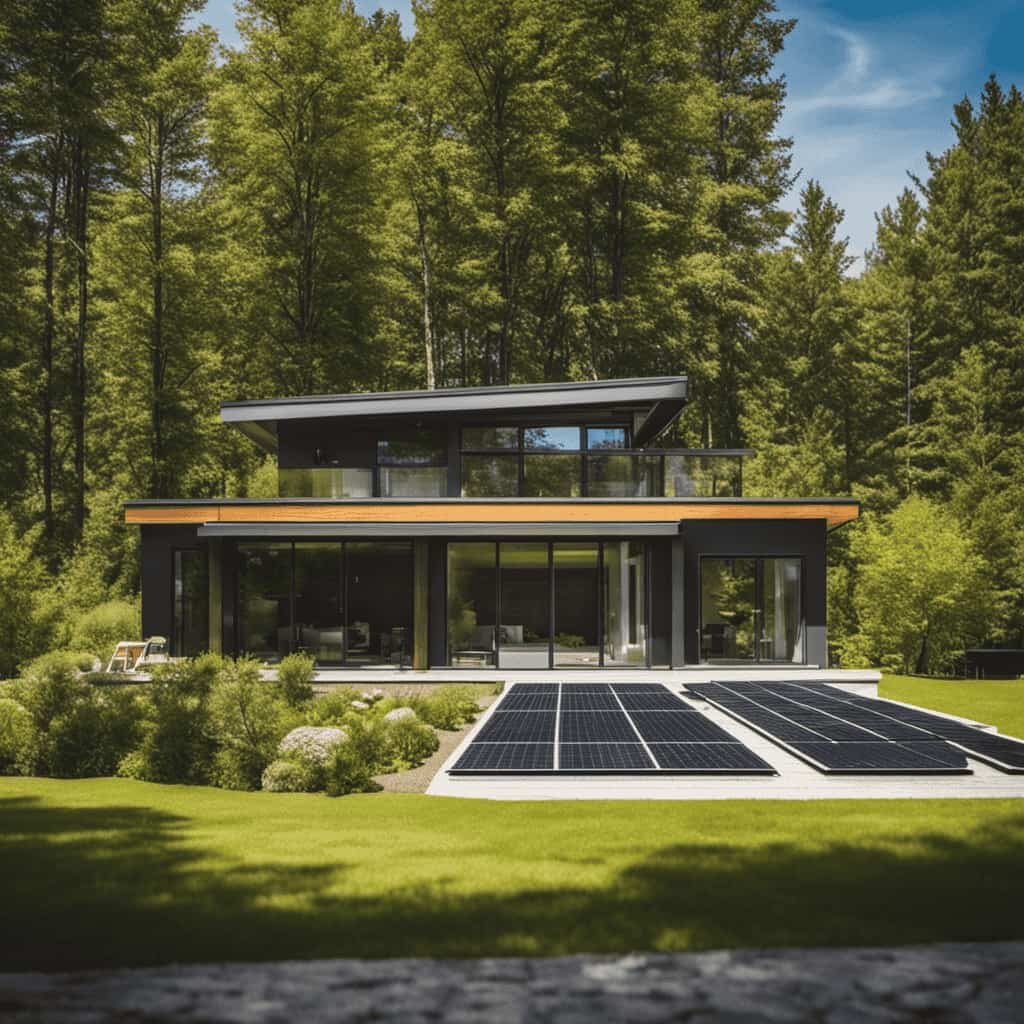
-
Seasonal changes: Changes in seasons, such as transitioning from summer to winter, can impact the heat pump’s performance and energy efficiency, as it needs to adjust to different temperature requirements.
Considering these factors can help us optimize our heat pump’s energy efficiency and reduce operating costs.
Frequently Asked Questions
Can Heat Pumps Be Used in Extremely Cold Climates?
Yes, heat pumps can be used in extremely cold climates. However, they have limitations in very low temperatures. Alternative heating options, such as supplemental electric heaters or geothermal systems, can be considered in these situations.
What Is the Average Lifespan of a Heat Pump?
The average lifespan of a heat pump depends on factors like maintenance and usage. Regular maintenance and proper usage can increase the heat pump’s durability and extend its lifespan.
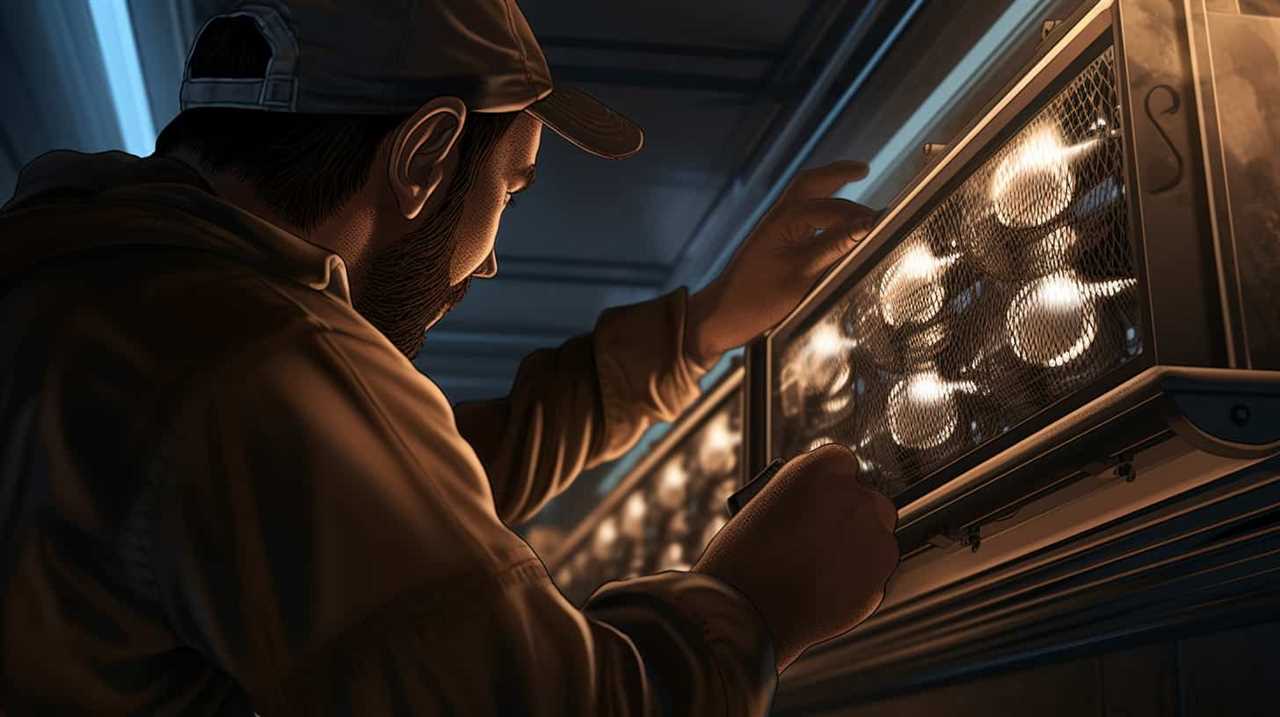
How Often Should Heat Pumps Be Serviced?
We believe that regular heat pump maintenance is vital. Servicing your heat pump periodically ensures optimal performance and extends its lifespan. Our experts recommend scheduling professional maintenance at least once a year.
Can a Heat Pump Be Installed in an Older Home With Poor Insulation?
Installing a heat pump in an older home with poor insulation can be challenging, but it is possible with proper modifications. Retrofitting offers benefits such as improved energy efficiency and cost savings. Let’s explore the options.
What Are the Potential Cost Savings of Using a Heat Pump Compared to Traditional Heating Systems?
Potential energy savings with a heat pump compared to traditional heating systems can be significant. By improving efficiency and utilizing renewable energy sources, heat pumps offer a cost-effective solution for heating and cooling needs.
Conclusion
In conclusion, it’s clear that several key factors affect the energy efficiency of heat pumps.
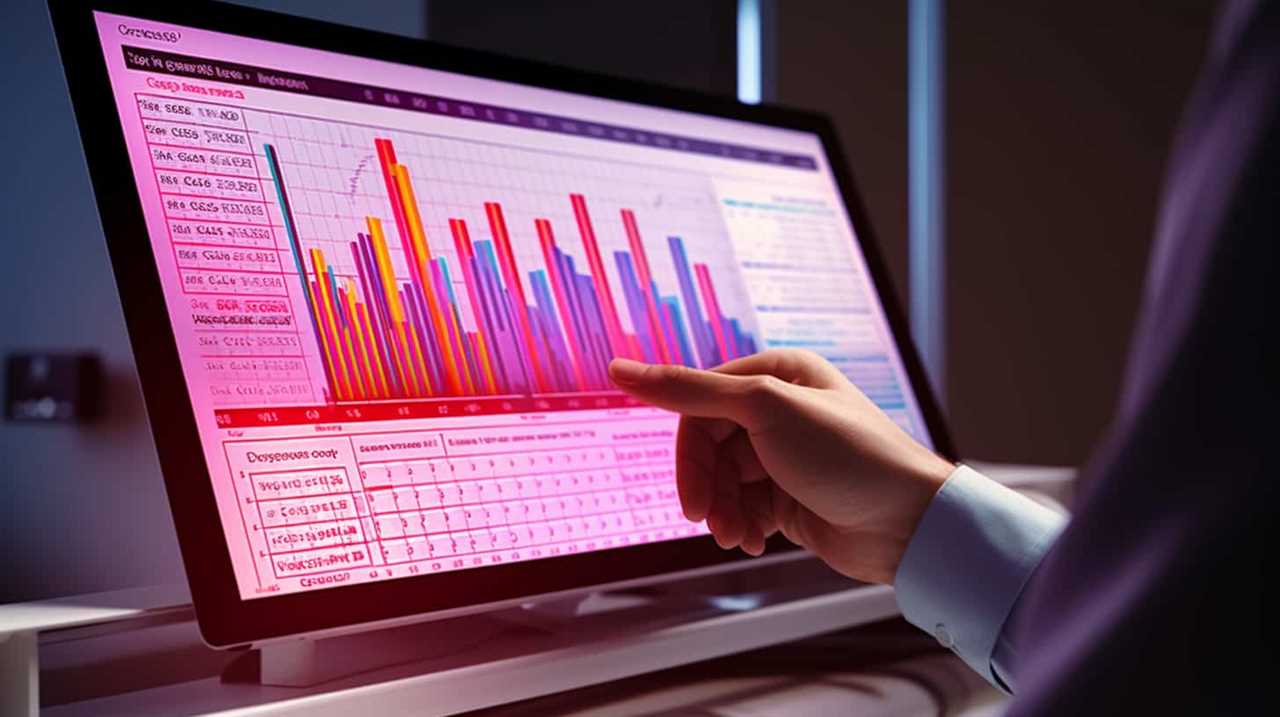
Proper sizing, insulation, and air sealing play crucial roles in optimizing performance.
Additionally, maintaining the thermostat settings and ensuring regular maintenance of the heat pump are vital.
However, one interesting statistic to note is that climate and weather conditions can have a significant impact on the efficiency of heat pumps, with studies showing that extreme temperatures can reduce energy efficiency by up to 25%.


